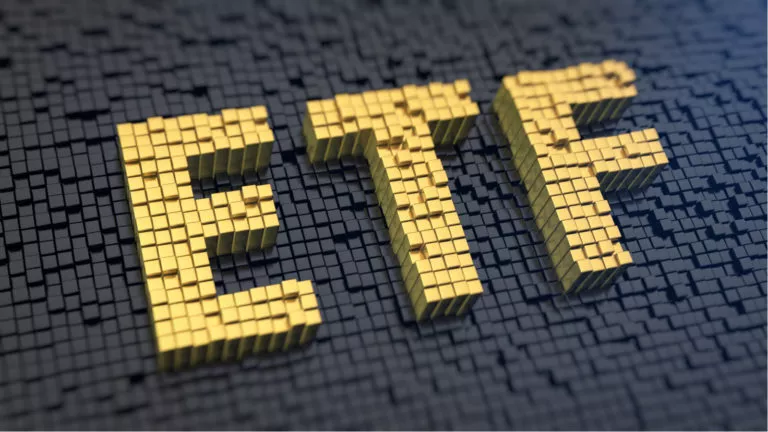Investing in the financial markets has never been more accessible or diverse, thanks to the advent of investment vehicles such as exchange-traded funds (ETFs) and mutual funds. These two investment options offer individuals the opportunity to diversify their portfolios, gain exposure to a range of assets, and potentially reap long-term rewards. In this article, we will delve into the world of ETFs and mutual funds, exploring their definitions, features, benefits, and key differences.
I. Understanding ETFs:
Exchange-traded funds, or ETFs, have gained immense popularity among investors in recent years. These investment vehicles combine the diversification benefits of mutual funds with the flexibility and tradability of individual stocks. Here are some key points to consider:
What are ETFs?
ETFs, an investment revolution
ETFs are investment funds that trade on stock exchanges, tracking the performance of a specific index, sector, commodity, or asset class. They are designed to provide investors with exposure to a broad range of underlying assets, allowing for diversification and risk management.
Structure and Functionality:
Unlocking the mechanics of ETFs
ETFs are structured as open-end investment companies or unit investment trusts. The former allows for greater flexibility in creating and redeeming shares, while the latter typically passively tracks an index. ETFs are traded throughout the day on exchanges, enabling investors to buy and sell shares at market prices, unlike mutual funds which are priced at the end of the trading day.
Advantages of ETFs:
The power of choice and cost-effectiveness
ETFs offer several advantages to investors, including intraday trading, diversification, transparency, and cost-effectiveness. With ETFs, investors have the flexibility to buy and sell shares throughout the trading day, enabling them to react quickly to market conditions. Moreover, ETFs often have lower expense ratios compared to mutual funds, making them an attractive option for cost-conscious investors.
II. Exploring Mutual Funds:
Mutual funds have long been a staple in the world of investing. These pooled investment vehicles are managed by professional fund managers and offer investors the opportunity to access a diversified portfolio of assets. Let’s delve deeper:
Definition and Features:
The collective power of mutual funds
A mutual fund is a professionally managed investment vehicle that pools money from multiple investors to invest in a diversified portfolio of stocks, bonds, or other assets. They are governed by specific investment objectives and managed by experienced fund managers who make investment decisions on behalf of the investors.
Types of Mutual Funds:
Diversification for every investment goal
Mutual funds come in various types, including equity funds, bond funds, balanced funds, sector-specific funds, and index funds. Each type caters to different investment goals and risk appetites, providing investors with a wide array of options to choose from based on their preferences.
Benefits of Mutual Funds:
Professional management and accessibility
Mutual funds offer several advantages, including professional management, diversification, accessibility, and economies of scale. By investing in a mutual fund, individuals gain access to the expertise of professional fund managers who actively make investment decisions to maximize returns and manage risks.
III. Key Differences and Considerations:
While ETFs and mutual funds share some similarities, they also have distinct characteristics that make them suitable for different investment strategies and preferences. Here are some key points to consider:
Cost and Expense Structure:
ETFs tend to have lower expense ratios compared to mutual funds, primarily due to their passive investment approach and lower management fees. Mutual funds often incur higher expense ratios due to active management and other administrative costs.
Trading and Liquidity:
ETFs trade throughout the day on stock exchanges, allowing investors to buy and sell shares at market prices in real-time. Mutual funds, on the other hand, are priced at the end of the trading day, based on the net asset value (NAV) of the underlying securities. This key difference gives ETF investors the advantage of intraday trading and the ability to react quickly to market movements.
Investment Strategy and Management Style:
ETFs are often passively managed and aim to replicate the performance of a specific index or asset class. They typically have lower turnover rates and lower capital gains distributions, making them more tax-efficient. Mutual funds, on the other hand, can be actively managed, with fund managers making investment decisions based on market analysis and research. This active management approach may lead to higher turnover rates and potential capital gains distributions, impacting taxes.
Minimum Investment and Accessibility:
ETFs generally have no minimum investment requirements, allowing investors to purchase a single share or more. This accessibility makes them suitable for investors with smaller portfolios. Mutual funds may have minimum investment thresholds, which can vary depending on the fund. This can limit access for some investors, especially those with smaller amounts to invest.
Transparency:
ETFs offer a high level of transparency as their holdings are disclosed on a daily basis. Investors can easily track the underlying assets and their weightings in the fund. Mutual funds, on the other hand, have less frequent reporting, typically providing a complete list of holdings on a quarterly basis. This reduced transparency may not be ideal for investors who prefer real-time visibility into the fund’s holdings.
Conclusion:
ETFs and mutual funds are powerful investment vehicles that have revolutionized the way individuals invest in the financial markets. ETFs provide flexibility, intraday trading, and cost-effectiveness, while mutual funds offer professional management, diversification, and accessibility. Understanding the differences between these two options is essential for investors to make informed decisions based on their investment goals, risk tolerance, and preferences.
Ultimately, the choice between ETFs and mutual funds depends on various factors, including investment strategy, liquidity needs, cost considerations, and personal preferences. It is recommended to consult with a financial advisor or conduct thorough research before making investment decisions. By harnessing the potential of ETFs and mutual funds, investors can build well-diversified portfolios that align with their financial objectives and pave the way for long-term growth and financial success.


